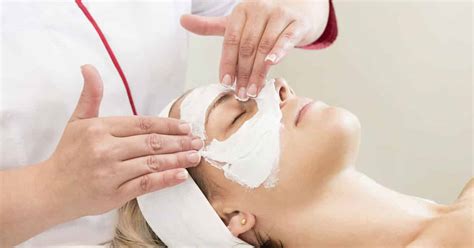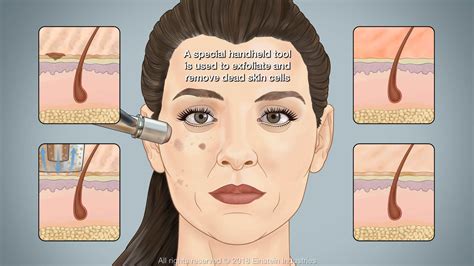What Is Acne?
Acne is a skin condition that causes pimples or “zits.” This includes whiteheads, blackheads, and red, inflamed patches of skin (such as cysts). It is a common problem in adolescence but can happen at any age group. The severity may vary from one individual to another, from minor acne pimples to very severe acne scarring. Dr Siddharth Sakhiya believes prevention of acne is better than cure, hence understanding the causes, pathology, and options for acne treatment can help you prevent sequelae of acne.
Types of Acne:
-
Whitehead: If the top of the plug is white, it is called a whitehead.
-
Blackhead: If the top of the plug is dark, it is called a blackhead.
-
Cystic Acne: Acne that is deep in your skin can cause hard, painful cysts. This is called cystic acne.
What Are The Causes Of Acne?
Acne occurs when tiny holes on the surface of the skin become clogged. These holes are called pores. Each pore opens to a follicle. A follicle contains a hair and an oil gland. When glands produce too much oil, the pores can become blocked. Dirt, bacteria, and cells build up inside these pores leading to a full-fledged blockage. The blockage is called a plug or comedone. If bacteria start growing in that plug, they set up an inflammation-causing redness and pus. The commonest cause is an upsurge of hormones that increases the oil production and cell multiplication of the pores.
Although it may run in families indicating a genetic trait, it may be triggered by:
-
Hormonal changes related to puberty, menstrual periods, pregnancy, birth control pills, or stress.
-
Emotional stress caused due to unfortunate circumstances
-
Greasy or oily cosmetic and hair products.
-
Hair follicles clogged by oil and dead skin cells
-
Bacteria building up inside the pores
-
Certain drugs (such as steroids, testosterone, estrogen, and phenytoin).
-
High levels of humidity and sweating.
What Are The Acne Treatment Options At The Ancient Doctors?
The Ancient Doctors, Surat we have different options to treat acne. The treatment plan given to you will be based on the thorough evaluation of your condition.
Generally, Dr Siddharth Sakhiya, our Board-certified Plastic, Cosmetic and Hair Transplant Surgeon prescribes topical creams which contain Benzoyl Peroxide, Retinoid & Azelaic acid. These are mostly prescribed along with Isotretinoin tablets(It reduces the sebum production from the skin glands) & oral antibiotics if required. This is the first step of the treatment.
If the patient needs intensive treatment then The Ancient Doctors, Surat has two options:
Chemical Peels

Chemical peels are special medical peels made of chemicals and extracts such as beta-hydroxy acid, alpha-beta acids, retinol, chamomile and green tea.
Different chemical peels have different ingredients and different properties. The purpose of the chemical peels is to gently exfoliate the patient’s skin and remove the blockages caused by the acne.
These chemical peels are non-invasive and effective. They also help the skin in feeling rejuvenated and restore its glow. The chosen chemical peel will be gently applied to the skin by Dr Sakhiya.
Depending on the properties of the peel and how much impact is expected from one session, Dr Sakhiya will leave the peel on the skin for a pre-decided amount of time.
When the timer goes off, the peel will be removed from the patient’s skin. The Ancient Doctors, Surat recommends multiple sessions of chemical peels for best possible results.
Micro Dermabrasion

Dermabrasion is a process that involves exfoliating the skin with a special device to remove the upper affected layer of the skin and restore a radiant look. Micro dermabrasion is a cutting edge medical technology that is available at The Ancient Doctors, Surat which has helped a lot of our patients in effectively dealing with not only acne but also sun tan, blemishes, pigmentation and dark spots.
Dr Siddharth Sakhiya, our Board-certified Plastic, Cosmetic and Hair Transplant Surgeon performs the process focusing on best possible results and patient safety. According to Dr Sakhiya, exfoliation greatly helps in these situations and further aids in getting rid of any scars, spots and repairs the uneven skin tone.
A step by step breakdown of the process:
- Micro Dermabrasion is a minimally invasive procedure. Before the process begins a topical anaesthetic is applied so that the patient does not feel any discomfort.
- A device called dermabrader is then used on the skin of the patient. This device has exfoliating crystals which when rolled on the skin helps remove the problematic outer layer. It literally helps to ‘polish’ the skin.
- Certain dermabrader machines also have vacuums attached to them in order to suck the debris off the skin.
- Different types of dermabrader devices are used depending upon the amount of skin to be covered. In the nooks and crevices of the face like around the nose and mouth, dermabrader devices with a smaller tip are used.
- After the process, Dr Siddharth Sakhiya might apply some moisturizer to soothe and calm the skin
Acne Scar Treatment Options:
- Laser Skin Resurfacing
Laser Skin Resurfacing is a good acne scar treatment for milder acne scars. Laser skin resurfacing removes the top layer of the skin. This treatment typically has a faster healing time than other resurfacing treatments.
However, you have to keep the area covered with a bandage until it’s completely healed. This treatment is also not a good option for anyone who’s still getting breakouts, and it’s not as effective on darker skin tones.
- Fillers
Acne scars usually lead to a depression in the skin where they are located. A good option for treating acne scars is using fillers in the depressed area. They’re injected under the surface of the skin to help plump up and smooth out depressed scars.
- Microneedling
Microneedling is a novel method that has gained a lot of momentum in the treatment of acne scars. It also helps in restoring a youthful glow to the skin. It is a minimally invasive, low downtime, safe and effective procedure.
It works by stimulating collagen production. Collagen is like food for the skin, and hence encouraging collagen production greatly helps the acne scars to heal naturally.
It makes use of a handpiece that has minuscule needles which help to make controlled injuries on the skin in order to boost collagen production.
- Fat Grafting
Fat grafting is a technique used in acne scar treatments. This is also called “Autologous” fat grafting ( meaning the patient’s own fat tissues are used in the removal of acne scars).
This treatment involves liposuction ( removing fat from one part of the body) and then injecting the tissues into the scar site.
Sometimes subcision is also necessary when treating acne scars. Subcision is performed using a special hypodermic needle inserted through a puncture in the skin surface. The sharp edge of the needle is used to break fibrotic strands that are tethering the scar to the underlying tissue. The release of the fibrotic strands and new collagen deposition caused by wound healing leads to cosmetic improvement of the scar.
This Subcision and Fat Grafting surgical procedure is performed under local anaesthesia at The Ancient Doctors, Surat. It has improved the appearance of depressed scars in our patients. Fat grafting effectively evens out the acne scars and makes their appearance equivalent to normal skin around the scar site.
How To Prevent Acne?
Dr Siddharth Sakhiya firmly believes that certain changes in lifestyle can help in the prevention of acne. Following are a few easy to implement acne prevention techniques for anyone suffering from acne outbursts:
-
The first and most essential step in preventing acne is keeping your face clean. This means you need to wash your face at least twice a day with a good quality face cleanser. The face wash removes impurities, dead cells and unclogs pores.
-
It is also important to keep your face well moisturised. Hence, We advises using a moisturizer at least once a day ( preferably when you wash your face early in the morning) on your face.
-
Keeping your hair clean and oil-free should also be a part of your daily routine because the excess oil from the hair can travel to the face and lead to acne problems. Therefore, ensure that your hair is clean and non-oily at all times.
-
We strongly advises patients to avoid physical, mental and emotional stress. He explains that stress is a major factor that can cause outbreak of acne. Hence, a patient who is vulnerable to acne problems should take efforts to remain stress-free at all times.
-
When stepping out into the sun, use a sunscreen with at least SPF 30 to protect your skin and face. The harsh sun can dry your skin quickly and lead to an outbreak of acne.
-
When it comes to food choices, We advise opting for healthy, non-oily food items. He believes that eating junk food, or food items high on oil and salt can increase your risk of developing acne. So make wiser and healthier food choices to prevent acne.
-
Last but not the least in case you want advice that will be suitable to your specific case and health conditions, then get in touch with Dr Siddharth Sakhiya, who can guide you on how to prevent acne through a one-on-one consultation.
Who Is An Ideal Candidate For Acne Treatments?
We have laid down some basic guidelines for a person to be an ideal candidate for Acne Treatments:
-
An overall healthy person, with no chronic or serious medical conditions.
-
A person suffering from a persistent acne problem.
-
A person who wishes to eliminate acne and acne scars from his/her skin.
Please note that all acne and acne scar treatments at The Ancient Doctors, Surat are gender-neutral, hence patients of both genders can make the most of this treatment.
What Is The Recovery Process For Acne Treatments?
Acne treatments at The Ancient Doctors, Surat are non-invasive or minimally invasive by nature. These treatments need a very low downtime for patients to recover.
Patients do not experience any pain during recovery. Mild tingling sensation or heightened skin sensitivity is common.
We may prescribe some topical creams to help in faster recovery and better skin.
What Are The Risks Associated With Acne And Acne Scars Treatments?
Here are some of the rare risks associated with Micro Dermabrasion:
- Scarring
- Poor Healing
- Redness of the skin
- Pain and discomfort
- Undesirable results
Here are some rare risks associated with Chemical Peels:
- Allergic reaction
- Heightened sensitivity post-treatment
- Redness
- Excessive exfoliation
- Undesirable results
Click here to book your appointment.